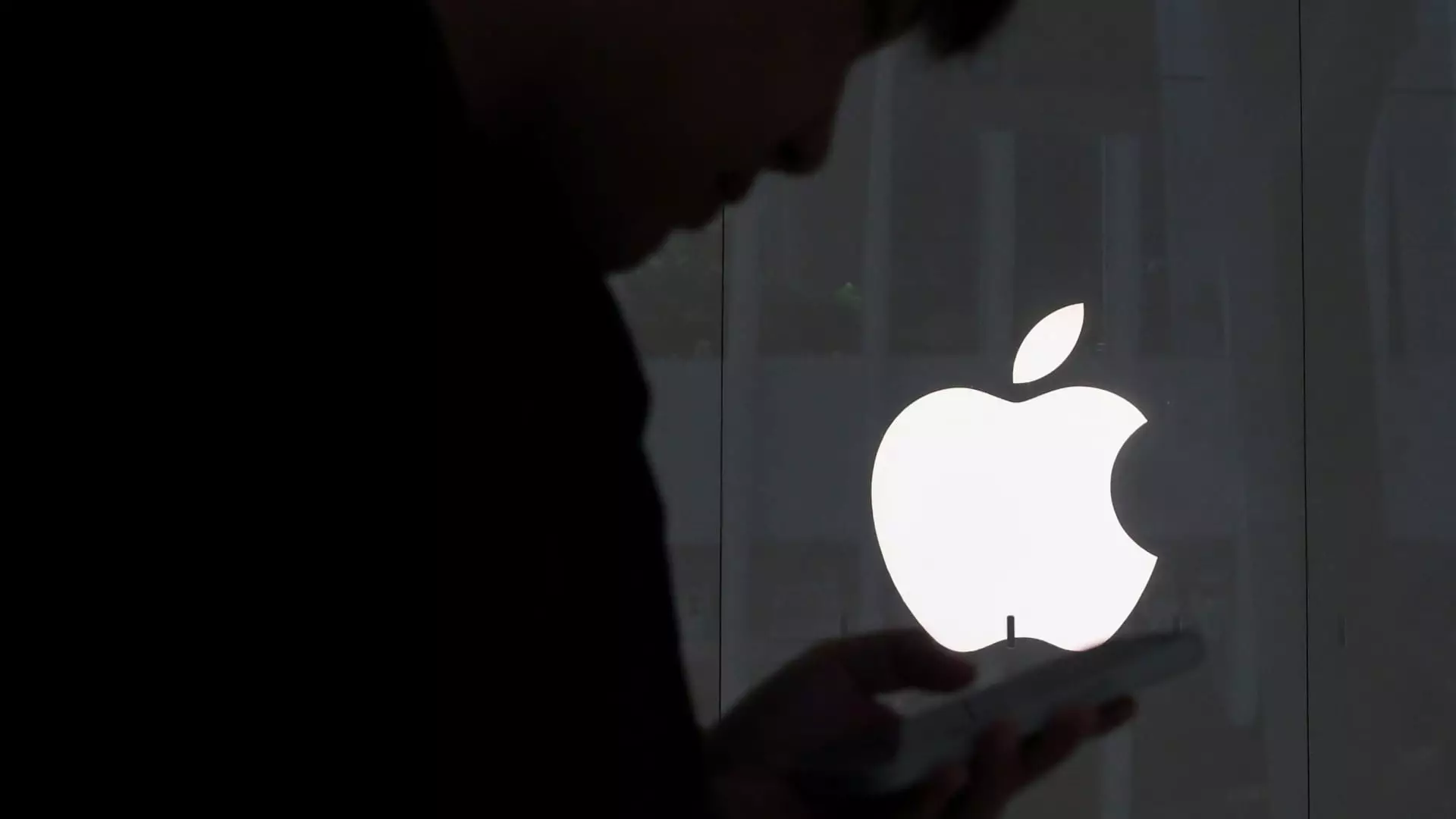Apple Inc., the tech giant that has become synonymous with innovation, is beginning to show signs of being overvalued. According to recent analyses from Needham, investors should be exercising caution. The investment firm bestowed a downgrade upon Apple, shifting the stock’s rating to a hold status from a spectacular buy. Analyst Laura Martin’s decision to rescind her optimistic price target of $225, which projected a 10.7% upside, reflects deeper concerns. She opines that Apple’s current valuation, particularly with a forward multiple of 26 times earnings, poses significant risks—especially when juxtaposed against its competitors in the sprawling tech landscape.
Apple’s performance has historically commanded a premium due to its brand loyalty and groundbreaking products like the iPhone, yet as growth slows, this premium valuation appears increasingly tenuous. Those who closely follow the marketplace should take heed: AAPL’s present valuation rests a staggering 50% above its 10-year average. In the age of hypersensitivity to data and metrics, this disparity must be scrutinized. If Apple is indeed overvalued to such an extent, investors would do well to reconsider the wisdom of investing at these levels.
A Changing Paradigm of Competition
The shifting tides of competition within the tech sector cannot be overstated. In a landscape where competitors are not just imitating but innovating, Apple faces threats on multiple fronts. Prominent tech players like Meta Platforms and Google are actively refining their strategic visions to encroach upon Apple’s traditional domains. Martin notes a scenario where both Google and Meta may leapfrog Apple with cutting-edge augmented reality glasses, whereas Apple appears to have faltered by abandoning its own AR glasses project.
The notion of Jony Ive, once Apple’s chief design officer, turning to OpenAI raises eyebrows further. His stated ambition to move consumers away from screens altogether indicates a potential paradigm shift in product design that Apple may not be prepared to handle. If this visionary concept finds traction, could it mean that Apple’s iPhone-centric model will soon be obsolete? It’s a compelling question that needs serious consideration, as Apple has historically relied on its flagship products to pave the way for its revenue streams.
Challenges in the Consumer Spending Climate
In addition to competitive threats, Apple faces a more insidious challenge: the current economic malaise affecting consumer spending. Increased inflation and tightening monetary policies have led to a sluggish smartphone market, putting pressure on sales that were already plateauing. As consumers prioritize essential expenditures over gadgetry, Apple’s robust ecosystem could be vulnerable. The firm risks losing out on a staggering $20 billion it currently receives annually from Google for maintaining Safari as the default search engine—an arrangement that could fall by the wayside as regulations become stricter.
With Apple shares plunging down 19% this year, the question remains whether the company can pivot and attract consumers in a cost-conscious environment. The stagnant conditions within the consumer electronics market point toward a potentially perilous future for the iconic company, as its revenue streams could run dry if not revitalized soon.
The Perils of Regulatory Scrutiny
Regulatory scrutiny is contributing to an increasingly hostile environment for Apple. With antitrust investigations looming over tech behemoths, the prospect of Apple facing heightened litigation risks complicates its business model. The company’s propensity to maintain a walled-garden ecosystem has drawn the ire of regulators, and each new legal development could tilt the scale further against it. Even though many analysts are still bullish on Apple, as evidenced by the majority recommending a buy or strong buy, the landscape is vastly different now compared to just a year ago.
In many ways, Apple’s insulated fortress is starting to look more like a gilded cage. If competitors continue to outpace Apple in growth metrics and upcoming technological advancements, the narrative will shift. Investors might find themselves clinging to an outdated perception of Apple as a bulletproof investment. The reality dichotomy could not be sharper; without adapting swiftly to the ever-evolving tech landscape, Apple risks becoming a relic of its former brilliance.
While Apple’s products continue to resonate with consumers and the brand remains iconic, the underlying issues—expensive valuations, increased competition, dwindling consumer interest, and regulatory headwinds—demand serious reevaluation. Rather than viewing Apple as a bastion of reliability, it may be time to see it as a titan with feet of clay.

